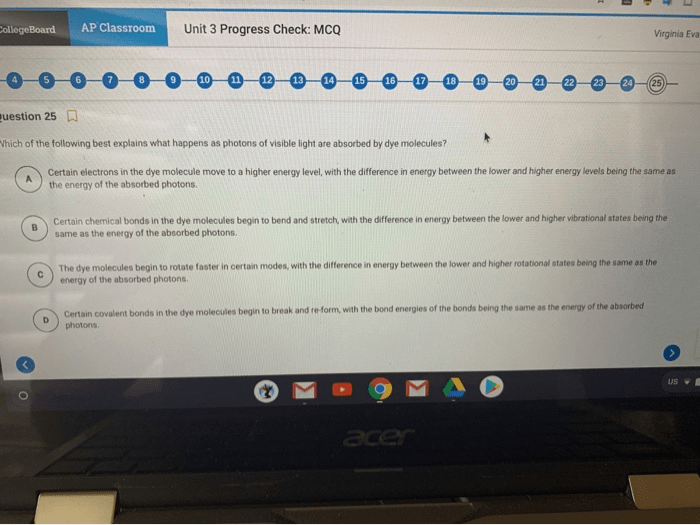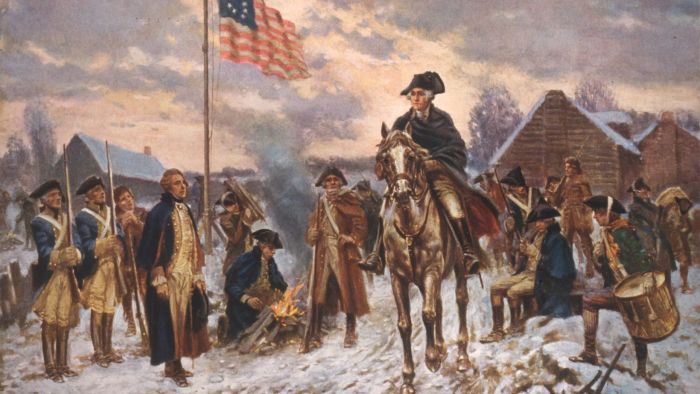Embark on an engaging journey through the APUSH Unit 9 Progress Check MCQ, where history unfolds before your eyes. This interactive tool delves into the key concepts, causes, major events, and profound impact of the American Revolution, providing a comprehensive understanding of this pivotal era.
Through a series of thought-provoking questions, you will explore the political, economic, and social forces that ignited the flames of revolution, analyze the transformative events that shaped the course of the war, and unravel the far-reaching consequences that reshaped the United States and its relationship with the world.
Key Concepts and Terms

Understanding the key terms and concepts related to the APUSH Unit 9 Progress Check MCQ is crucial for comprehending the historical events and their significance during the American Revolution and the founding of the United States.
These terms provide a framework for analyzing the causes, events, and outcomes of this transformative period in American history.
Terms and Historical Significance
Here are some key terms and their historical significance:
- Declaration of Independence: A document drafted by Thomas Jefferson and adopted by the Continental Congress on July 4, 1776, declaring the American colonies’ independence from British rule.
- Articles of Confederation: The first constitution of the United States, ratified in 1781, which established a loose confederation of states with limited central authority.
- Constitutional Convention: A meeting held in Philadelphia in 1787 to revise the Articles of Confederation, resulting in the creation of the U.S. Constitution.
- Bill of Rights: The first ten amendments to the U.S. Constitution, ratified in 1791, which guarantee individual freedoms and protections against government overreach.
- Federalism: A system of government in which power is divided between a central authority and regional or state governments.
- Separation of Powers: A principle of government that divides power among different branches (executive, legislative, and judicial) to prevent any one branch from becoming too powerful.
- Checks and Balances: A system of government in which each branch of government has the ability to limit the power of the other branches.
Examples of Usage
These terms were central to the events and debates surrounding the American Revolution and the founding of the United States:
- The Declaration of Independence asserted the colonies’ right to self-governance and Artikeld the principles of individual liberty and equality.
- The Articles of Confederation proved to be ineffective due to its weak central government, leading to the Constitutional Convention.
- The Constitutional Convention debated the balance of power between the federal government and the states, resulting in the federalist system.
- The Bill of Rights protected individual freedoms and ensured that the new government would not become tyrannical.
Causes of the American Revolution

The American Revolution was a complex conflict with deep-rooted causes in political, economic, and social tensions between the American colonies and Great Britain. This section will explore the key factors that contributed to the outbreak of the Revolution, including the role of the French and Indian War and the impact of British policies such as the Stamp Act and the Tea Act.
Political Factors
Political tensions between the colonies and Great Britain stemmed from the colonists’ perception of being treated as second-class subjects. They resented the lack of representation in the British Parliament and the imposition of laws without their consent. The colonists believed that they had the right to govern themselves and that British attempts to assert control over their affairs were a violation of their natural rights.
Economic Factors
Economic grievances also played a significant role in fueling colonial discontent. The British government’s mercantilist policies, which restricted colonial trade and industry, were seen as unfair and harmful to the colonies’ economic development. The colonists resented being forced to buy British goods and pay high taxes on imports.
Are you facing difficulties with your APUSH Unit 9 Progress Check MCQ? Don’t worry, we’ve got you covered! Just like the lift that transports you effortlessly to higher floors, our expert guidance will elevate your understanding of the material. By leveraging our resources, you’ll master the intricacies of APUSH Unit 9 and conquer those pesky MCQs!
They also objected to the British government’s attempts to regulate their currency and land speculation.
Social Factors
Social tensions between the colonies and Great Britain were exacerbated by cultural and religious differences. The colonists were predominantly Protestant, while the British were largely Anglican. The colonists also resented the British government’s attempts to impose its own social and cultural norms on them.
They believed that their own values and traditions were superior to those of the British.
The French and Indian War
The French and Indian War (1754-1763) was a major turning point in relations between the colonies and Great Britain. The war strained the British government’s finances and led to a series of new taxes being imposed on the colonies. These taxes, combined with the colonists’ resentment of the British military presence in the colonies, further fueled tensions and contributed to the outbreak of the Revolution.
British Policies
A series of British policies, including the Stamp Act (1765), the Townshend Acts (1767), and the Tea Act (1773), were met with strong resistance from the colonies. The colonists saw these policies as an attempt by the British government to assert its authority over them and to raise revenue without their consent.
Colonial protests against these policies, such as the Boston Tea Party (1773), further escalated tensions and brought the colonies closer to open rebellion.
Major Events of the American Revolution

The American Revolution was a period of intense political and military conflict between Great Britain and its thirteen colonies in North America. It began with the Boston Tea Party in 1773 and culminated in the signing of the Treaty of Paris in 1783, which recognized the independence of the United States.
Timeline of Major Events
- 1773:Boston Tea Party
- 1775:Battles of Lexington and Concord, beginning of the war
- 1776:Declaration of Independence
- 1777:Battles of Saratoga, turning point of the war
- 1781:Battle of Yorktown, British surrender
- 1783:Treaty of Paris, recognition of American independence
Key Battles and Turning Points
The American Revolution was fought on multiple fronts, with key battles and turning points including:
- Battles of Lexington and Concord (1775):The first military engagements of the war, which marked the beginning of armed resistance to British rule.
- Battle of Saratoga (1777):A major victory for the Continental Army, which convinced France to enter the war on the American side.
- Battle of Yorktown (1781):The final major battle of the war, which resulted in the British surrender and the effective end of the conflict.
Significance of the Declaration of Independence and the Articles of Confederation
The Declaration of Independence (1776) was a pivotal document that declared the thirteen colonies’ independence from Great Britain. It Artikeld the principles of self-government and individual rights that would form the foundation of the United States.
The Articles of Confederation (1781) was the first constitution of the United States. It established a loose confederation of states with a weak central government. However, it proved to be inadequate to meet the challenges of governing a new nation, and was eventually replaced by the Constitution in 1789.
Impact of the American Revolution: Apush Unit 9 Progress Check Mcq

The American Revolution profoundly reshaped the political, social, and economic landscape of the United States. It not only led to the establishment of an independent nation but also ignited a series of transformations that continue to shape the country today.
Political Consequences
The Revolution shattered the British colonial system and established the United States as a sovereign nation. It replaced the monarchy with a republican form of government based on the principles of popular sovereignty and representative democracy. The Declaration of Independence proclaimed the natural rights of individuals, including life, liberty, and the pursuit of happiness, which became the cornerstone of American political thought.
Social Consequences
The Revolution brought about significant social changes. It weakened the power of the aristocracy and opened up opportunities for social mobility. The expansion of westward settlement led to the emergence of a more egalitarian society, where land ownership and economic independence became more accessible to ordinary citizens.
The Revolution also fostered a spirit of nationalism and unity among Americans, who now shared a common identity as citizens of an independent nation.
Economic Consequences, Apush unit 9 progress check mcq
The Revolution had a profound impact on the American economy. It disrupted trade with Great Britain, leading to the development of new markets and industries. The establishment of a national government provided a framework for economic growth and stability. The westward expansion and the acquisition of new territories created vast opportunities for economic exploitation and development.
The Revolution also spurred the growth of manufacturing and the emergence of a capitalist economy based on private enterprise and free markets.
Transformation of the United States
The American Revolution transformed the United States from a colonial outpost into a global power. It established a new political system that became a model for other nations seeking independence and self-governance. The Revolution also fostered a sense of national identity and unity that has endured to this day.
Legacy for Subsequent Generations
The legacy of the American Revolution continues to inspire generations of Americans. Its principles of liberty, equality, and self-government have shaped the nation’s political and social institutions. The Revolution’s ideals have also been a source of inspiration for movements seeking social justice and human rights around the world.
Common Queries
What is the purpose of the APUSH Unit 9 Progress Check MCQ?
The APUSH Unit 9 Progress Check MCQ is designed to assess your understanding of the key concepts, causes, major events, and impact of the American Revolution.
What types of questions can I expect on the APUSH Unit 9 Progress Check MCQ?
The APUSH Unit 9 Progress Check MCQ includes a variety of question types, such as multiple choice, true/false, and short answer questions.
How can I prepare for the APUSH Unit 9 Progress Check MCQ?
To prepare for the APUSH Unit 9 Progress Check MCQ, review your class notes, textbook readings, and any additional materials provided by your teacher. Additionally, practice answering multiple choice, true/false, and short answer questions on the topic.